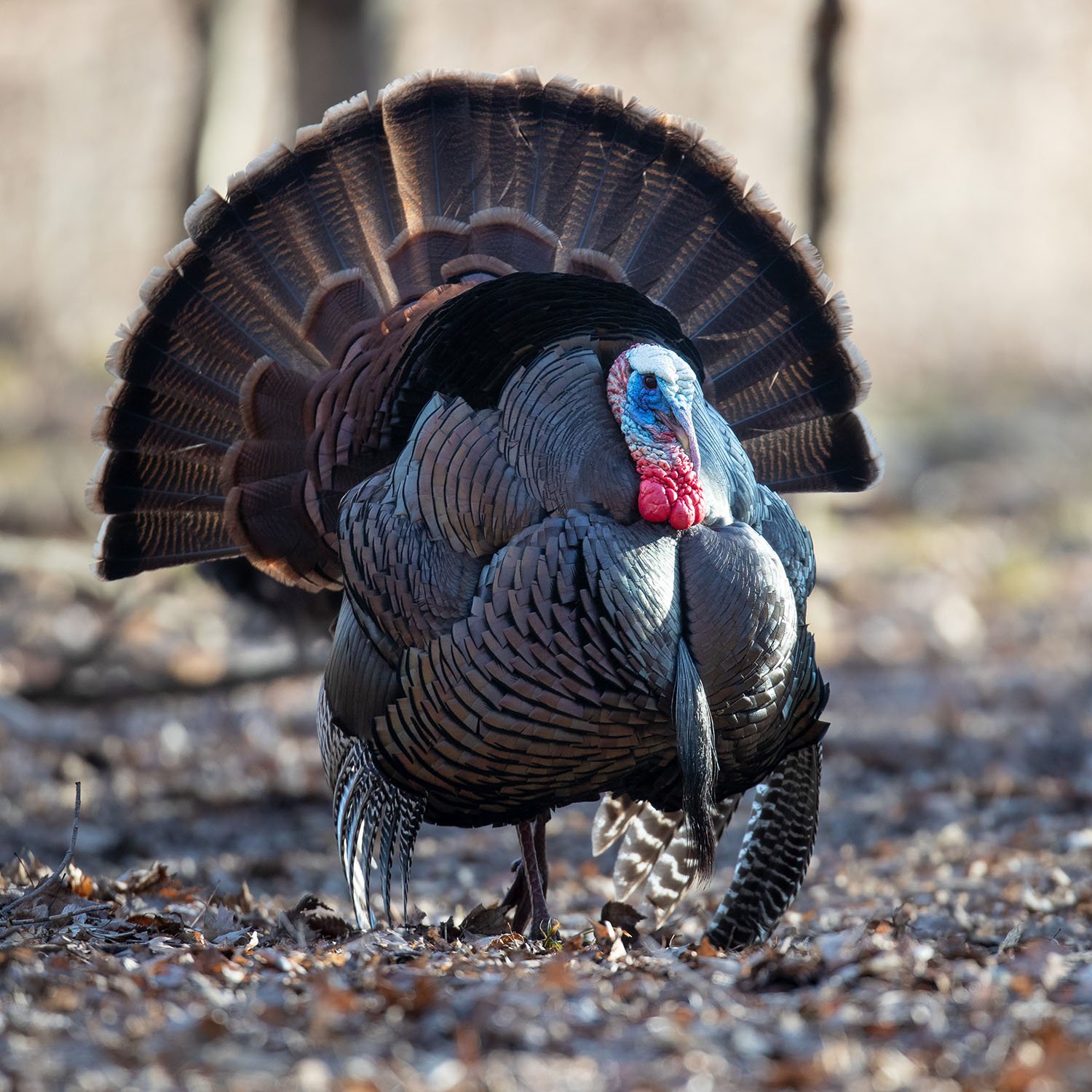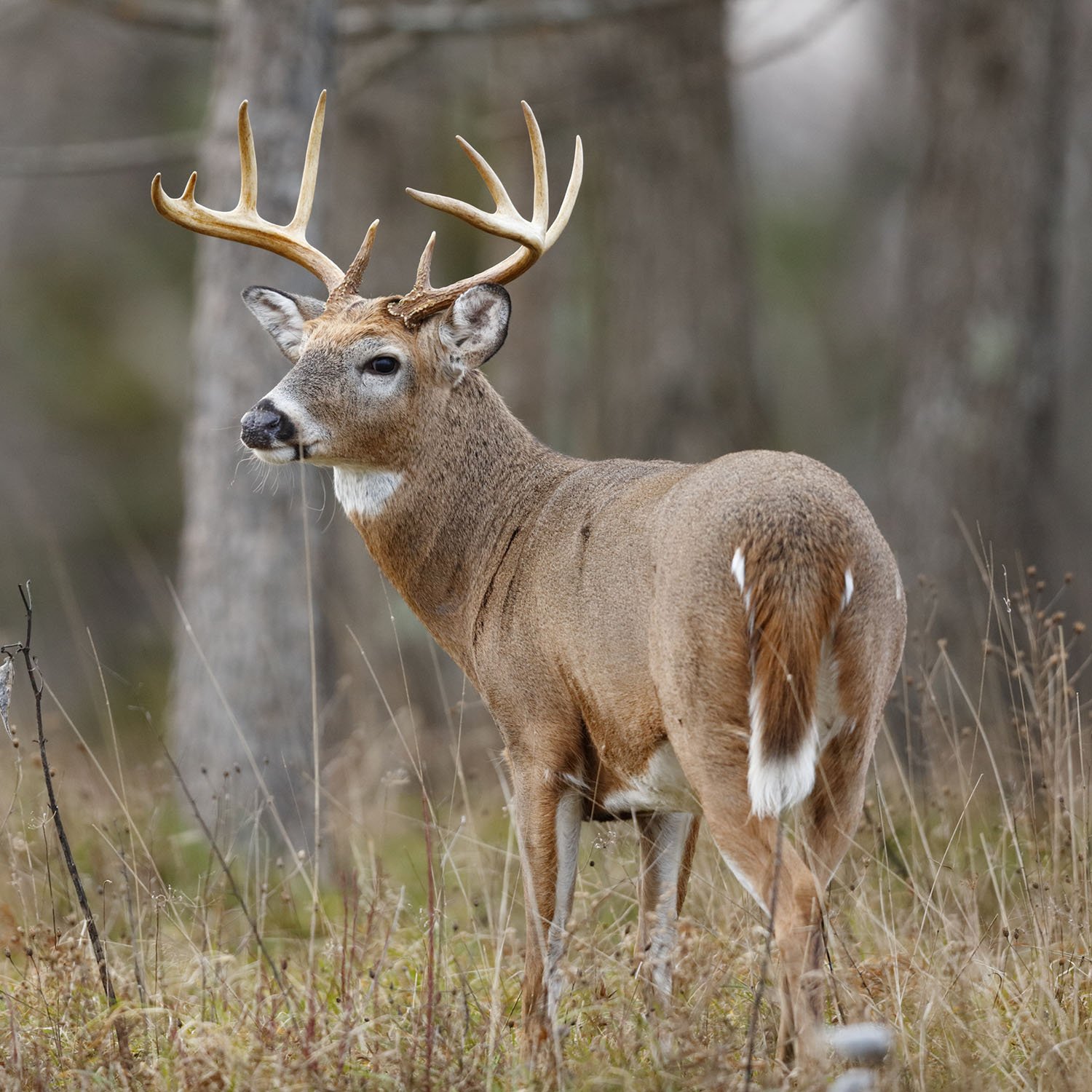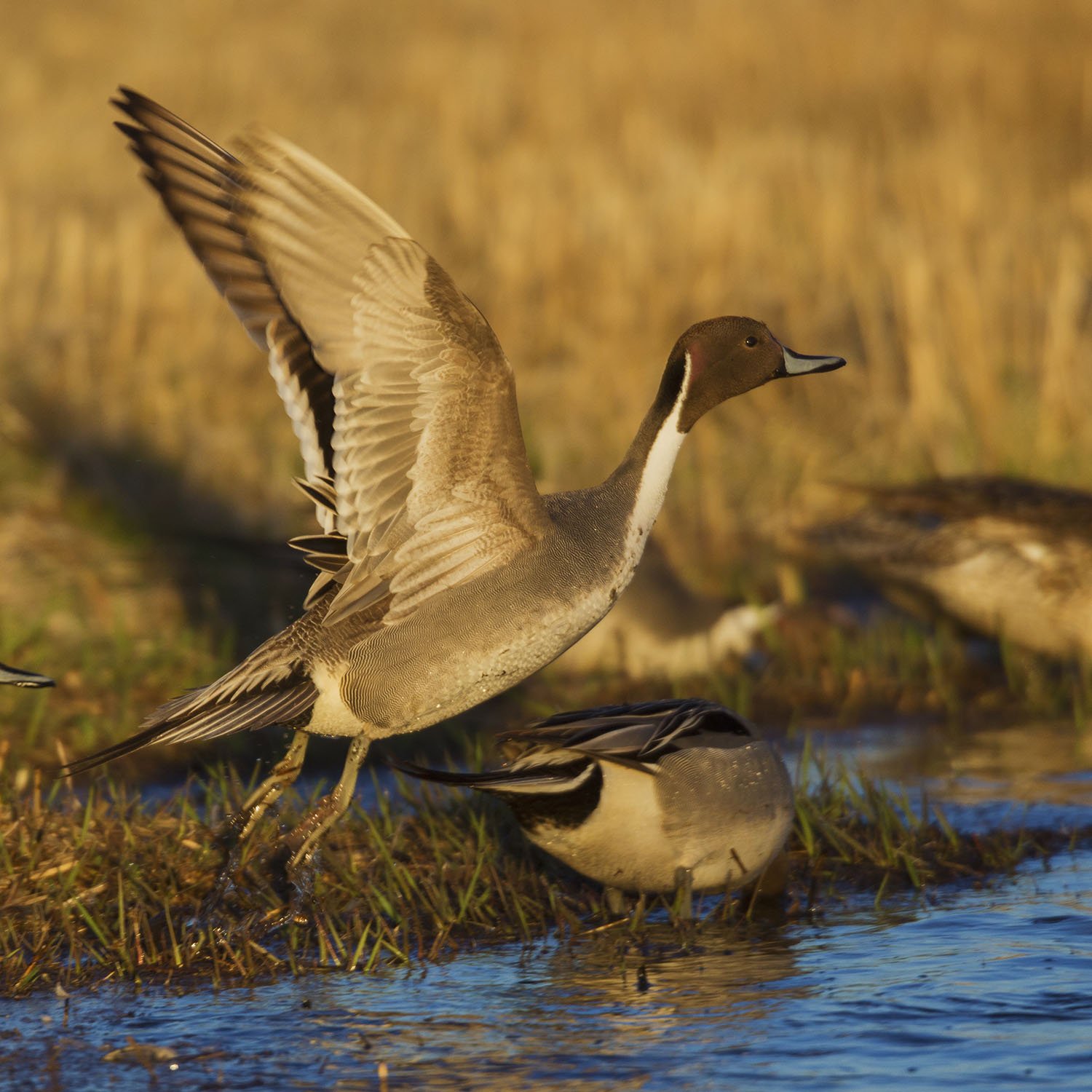Massachusetts Hunting Guide
Massachusetts is a highly urbanized state, making it difficult to find land for hunting. However, the state’s open areas do support a variety of large and small game species for hunters to enjoy. Western Massachusetts in particular offers significant areas of game-friendly habitat.
What to Hunt
Despite the lack of huntable land in Massachusetts, the state offers several popular game species.

Upland Game Birds
Massachusetts is stocked with 40,000 pheasants every year, which can be hunted on both public and private lands. Grouse and quail are also available for Massachusetts hunters. There is a bag limit of two pheasants per day, four in possession, and six total for the season. There are some regions where only male pheasants may be hunted. Hunters may use shotguns with no larger than #1 birdshot, or archery equipment. Crossbow hunters must obtain a special permit.

Turkey
Hunters enjoy moderate success rates and a population of 30,000 Eastern turkeys throughout the western region. In the spring season, the bag limit is two bearded birds; in the fall season, one turkey of either sex. Hunters may use shotguns no larger than 10 gauge, muzzleloaders no larger than .775 caliber, or archery equipment. Crossbows are only permitted to specially permitted disabled hunters. It is not legal to use electronic calls, dogs, bait, driving, or live decoys to hunt turkey in Massachusetts.

Deer
State managed forests and parks can have high deer populations due to lack of hunt pressure. Large bucks are frequently taken in Massachusetts. Bag limits are two antlered deer annually, and as many antlerless deer as a hunter has antlerless deer permits. It is permitted to use non-food scents, deer antlers, and grunt tubes, and it is permitted to drive deer while hunting.

Waterfowl
Elders, scoters, long-tailed ducks, and mallards are all popular waterfowl species taken each year in Massachusetts. Hunters may use archery equipment or shotguns no larger than 10 gauge with a capacity of no more than three shotgun shells. Crossbow permits are only granted to certain disabled persons, and it is not permitted to use poisoned arrows, explosive tips, or bows drawn mechanically. Dogs may be used, and only ducks and coot may be taken by falconry, though falconry is not permitted on Sundays.
Other Massachusetts game species include: Black Bear, Crow, Pheasant, Quail, Ruffed Grouse, Cottontail Rabbit, Snowshoe Hare, Gray Squirrel, Bobcat, Coyote, Fox, Opossum, Raccoon, etc. found in the "Hunting Seasons" section at bottom of the page.
Where to Hunt
Due to urbanization, Massachusetts does not have as much huntable land as some neighboring states. However, public and private hunting opportunities are available.
Wildlife Management Areas
Wildlife Management Areas (WMAs) and Wildlife Conservation Easements (WCEs) are huntable lands in Massachusetts. The state maintains dozens of these areas across the state. A full index of WMAs and WCEs can be found on the Massachusetts state government website.
State Forests and Parks
Most state parks and forests are available for hunters in Massachusetts. These areas are subject to restrictions on acceptable methods, game species, and seasons.
Private Hunting Lands
Most of Massachusetts is privately-owned land. Barring posted signage, hunters do not need permission to hunt on private lands. It is strongly recommended, but not legally required.
Conservation Lands
Some towns allow hunting on municipal lands. These lands are subject to firearms restrictions and regulations on acceptable species. It is important to contact the town in which conservation lands are located for full details.
Federal Lands
Massachusetts is home to several federal wildlife refuges. Some federal lands in Massachusetts are open for hunting. These areas are subject to individual restrictions on seasons, game, and methods of take.
Licensing Fees
All hunters over the age of 15 must have hunting licenses in Massachusetts. Additional fees may apply depending on the species being targeted.
| License | Fee |
|---|---|
| Resident Citizen Hunting | $29.50 |
| Resident Citizen Hunting (Age 65–69) | $14.75 |
| Non-resident (adult/minor) Hunting, Big Game (Deer, Bear, Turkey, and all other game species) | $101.50 |
| Non-resident (adult/minor) Hunting, Small Game (All game species except deer, bear, and turkey) | $67.50 |
| Resident Trapping | $34.00 |
| Resident Minor Trapping (Age 12–17) | $6.50 |
Hunter Education
If you are 18 years of age or older AND have not ever held a hunting license, you must complete a hunter education course to obtain a Massachusetts hunting license. Bowhunting and trapping courses are also available. These courses are free and open to the public.
Youth Hunting
No person under the age of 12 may hunt in Massachusetts.
Youths ages 12 - 14 are not required to have a hunting license to hunt. However, they may only hunt when accompanied by a licensed adult hunter (age 18 or older). Each adult may only supervise one minor at a time. The adult and the minor must share a single firearm (or bow) and obey a single bag limit.
Youths ages 15-17 are required to have all applicable licenses, permits, and tags. Parents must provide consent to these youths when purchasing such licenses.
Massachusetts offers youth hunting events for turkey, pheasant, deer, and waterfowl. Youth day hunters must be accompanied by an adult.
Trapping
A trapping license is required for all persons 12 years of age or older. The following animals may be legally trapped in Massachusetts: bobcat, coyote, fox, weasel, fisher, mink, river otter, beaver, muskrat, opossum, raccoon, and skunk.
Hunting Seasons
| Game | Season Begins | Season Ends |
|---|---|---|
| Deer* | Sep 30 2023 | Dec 30 2023 |
| Black Bear* | Sep 5 2023 | Dec 9 2023 |
| Crow | Jan 2 2023 | Apr 10 2023 |
| Jul 1 2023 | Apr 10 2024 | |
| Pheasant* | Sep 2 2023 | Dec 20 2023 |
| Quail* | Oct 14 2023 | Dec 30 2023 |
| Ruffed Grouse* | Oct 14 2023 | Nov 25 2023 |
| Wild Turkey* | Apr 22 2023 | May 20 2023 |
| Oct 2 2023 | Nov 25 2023 | |
| Cottontail Rabbit* | Jan 2 2023 | Feb 28 2023 |
| Oct 14 2023 | Feb 29 2024 | |
| Snowshoe Hare* | Jan 2 2023 | Feb 28 2023 |
| Oct 14 2023 | Feb 29 2024 | |
| Gray Squirrel* | Jan 2 2023 | Feb 28 2023 |
| Sep 5 2023 | Feb 29 2024 | |
| Bobcat* | Jan 2 2023 | Mar 8 2023 |
| Dec 20 2023 | Mar 8 2024 | |
| Coyote* | Jan 2 2023 | Mar 8 2023 |
| Oct 14 2023 | Mar 8 2024 | |
| Fox* | Jan 2 2023 | Feb 28 2023 |
| Nov 1 2023 | Feb 29 2024 | |
| Opossum* | Jan 2 2023 | Jan 31 2023 |
| Oct 1 2023 | Jan 31 2024 | |
| Raccoon* | Jan 2 2023 | Jan 31 2023 |
| Oct 1 2023 | Jan 31 2024 |
*Hunting dates for this species may vary by zone, method of take, or subspecies of animal. Visit the state’s website here to find out more.
Disclaimer: The information provided here is not to be construed as legal advice or acted upon as if it is legal advice: it is provided for informational purposes only. While we strive to provide accurate, up-to-date content, we cannot guarantee the accuracy, completeness, or currency of the information.